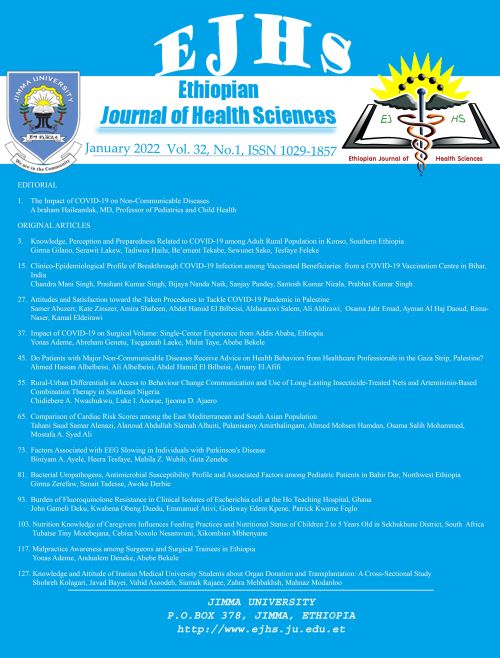Main Article Content
Fluoroquinolone, resistant genes, Escherichia coli, ciprofloxacin, quinolone resistance(qnr) gene
Abstract
BACKGROUND: The aim of this study was to determine caregivers’ nutrition knowledge and its influence on feeding practices and nutritional status on young children.
Methods: A cross-sectional survey was conducted in 120 caregiver-child pairs. A validated questionnaire was used to collect caregivers’ nutrition knowledge and feeding practices. Nutritional status was estimated using anthropometric measurements. Z-scores were computed using WHO Antro software. Chi-square test was used to determine the association between caregivers’ nutrition knowledge and feeding practices. Significance was set at p <0.05.
Results: Forty three percent of caregivers reported health professionals as their source of nutrition information. Almost all children (94.2%) were breastfed at one stage in their lives, with 62.5% introduced to solid foods before six months. Maize meal porridge (87.5%) and bread (54.2%) were consumed daily by most
of the children, while 48.3% consumed meat and meat products three to four times per week. One in eight children consumed fruits daily and 5.8% vegetables daily. Forty one percent of children were stunted. Family income showed positive correlation with the nutritional status of children (weight-for-age R = 0.207, p < .05; height-for-age R°=°0.203*, p°= .026). An association was observed between the duration of breastfeeding and alternative food, to milk (R = 0.302**, p = .001), amount of fruit consumed daily (R = 0.197*, p = .031) and number of meals consumed daily (R = 0.284**, p = .048).
Conclusion: Nutrition knowledge and feeding practices of the caregivers were not satisfactory.




